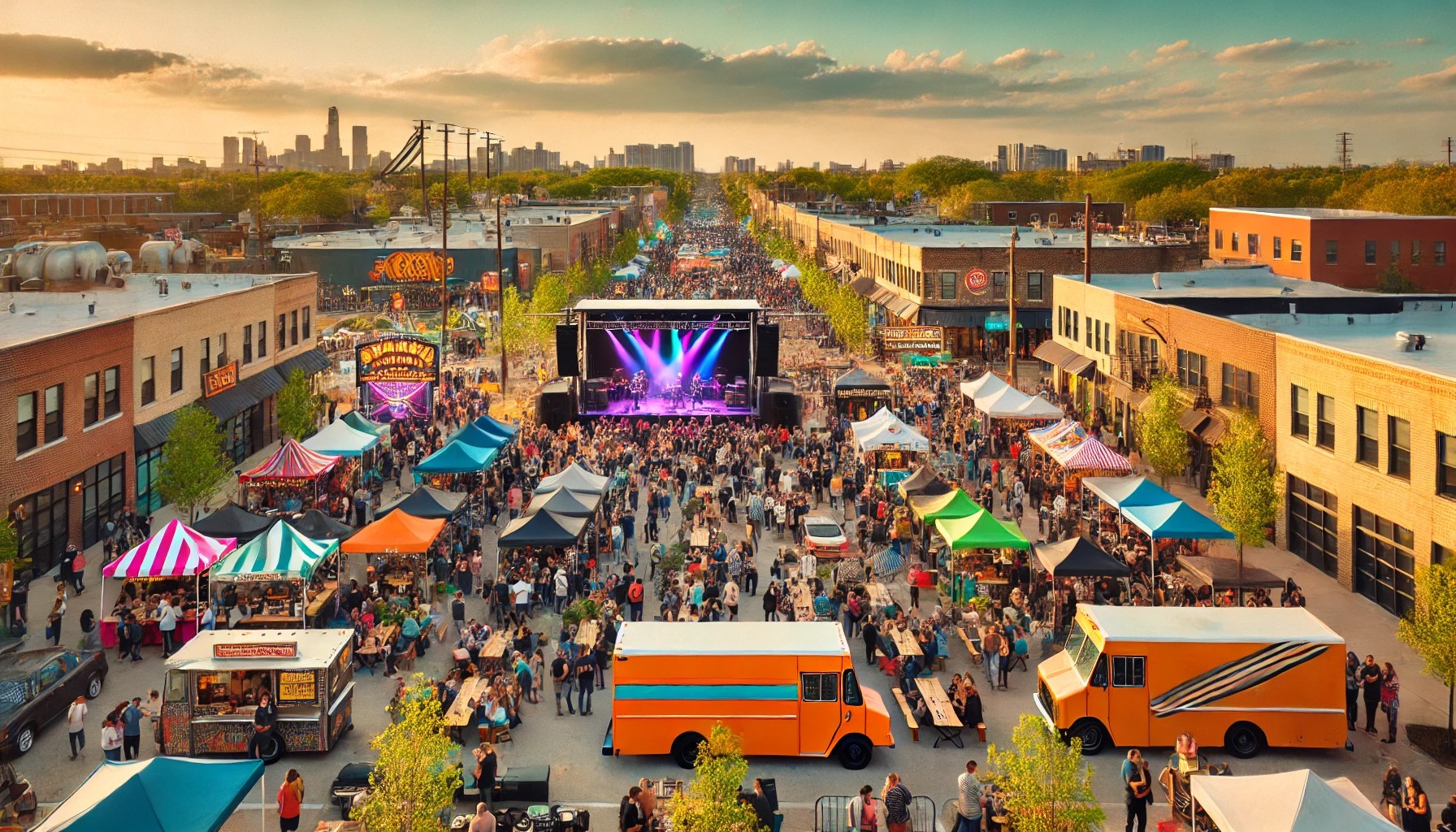Music festivals captivate thousands, offering a kaleidoscope of sounds and experiences. From local events to colossal gatherings like Coachella, the thrill and allure of these festivals are undeniable. But the shimmering facade of festival life is underpinned by substantial planning and financial commitment. Understanding the costs involved is crucial for any aspiring festival organiser who dreams of crafting an unforgettable musical experience.
Breakdown of Startup Costs
Venue Rental
Securing the perfect venue is pivotal for the festival’s success. The cost can vary dramatically based on location, size, and duration of the event. A rural field might only set you back a few thousand pounds, while iconic locations can demand upwards of £50,000 for a weekend.
- Key Factors Influencing Venue Cost:
- Location: Urban areas typically cost more than rural settings.
- Size: Larger venues command higher fees.
- Duration: Multi-day events incur higher rental costs.
Permits and Licenses
No festival can operate without the necessary legal permits and licenses. The complexity and cost of obtaining these can vary widely, often influenced by local regulations. Costs can range from £500 for a small local festival to over £25,000 for larger events.
- Common Permits Required:
- Noise Permit: Ensures compliance with local sound regulations.
- Event Permit: Covers safety and health inspections.
- Alcohol Permit: Required if alcohol is sold, varying widely based on local laws.
Talent Booking
The heart of any festival is its lineup. Costs here can spiral quickly, especially if aiming to attract headline acts. Booking emerging artists might cost a few thousand pounds, whereas top-tier performers can demand hundreds of thousands.
- Example:
- An up-and-coming band might cost £1,000-£5,000.
- A-list performers can easily require £100,000 or more.
Stage and Technical Equipment
The stage and its accompanying technical setup are not just practical necessities but also massive cost centres. Basic sound systems and lighting might start around £10,000, while elaborate setups with state-of-the-art equipment could exceed £100,000.
- Essential Components:
- Sound systems: Amplifiers, mixers, and microphones.
- Lighting: Basic rigs for visibility and complex arrays for effects.
- Staging: Platforms, barriers, and coverings for outdoor settings.
Marketing and Advertising
The best festival line-up in the world won’t sell a single ticket without effective marketing. Budget allocations here should be generous, typically running between £10,000 and £50,000, depending on the festival’s scale and ambition.
- Marketing Strategies:
- Digital Marketing: Social media campaigns, online ads, and email marketing.
- Traditional Media: Posters, flyers, and local radio spots.
- Influencer Partnerships: Engaging with influencers to reach broader audiences.
Each of these cost categories requires careful consideration and strategic planning. The dream of launching a music festival is an exhilarating prospect, but it comes with its fair share of financial hurdles.
Additional Considerations
Insurance
A critical safeguard for any festival is comprehensive insurance, protecting against unforeseen incidents. From general liability to cover injuries and damages to cancellation insurance for unexpected event interruptions, the costs are not negligible but are essential for risk management.
- Types of Insurance Needed:
- General Liability: Protects against claims of bodily injury and property damage.
- Cancellation Insurance: Offers financial protection if the event is unexpectedly cancelled.
- Property Insurance: Covers loss of equipment or venue damage.
Insurance premiums will vary based on the festival’s size and risk factors, with costs typically starting around a few hundred pounds for smaller events and scaling up for larger ones.
Staffing
The operational success of a festival hinges on a competent and sufficient staff. From front-of-house teams to technical experts, staffing costs can form a significant portion of the budget. While volunteers can reduce costs, key positions often require experienced professionals.
- Staffing Needs:
- Event Managers: Oversee all aspects of festival operations.
- Technical Crew: Handle sound, lighting, and stage setups.
- Security Personnel: Essential for maintaining order and safety.
Recruiting, training, and compensating staff appropriately are critical to ensuring a smooth festival experience for all attendees.
Food and Beverage
Offering food and drink enhances the festival experience but also adds a complex layer of logistics and costs. From securing vendors to ensuring a variety of options, the budget for food and beverages can quickly escalate, especially when alcohol is involved.
- Considerations for Festival Catering:
- Vendor Fees: Cost for space and utilities provided to food vendors.
- Alcohol Licenses: Additional permits may be required for selling alcoholic beverages.
- Health and Safety: Compliance with food safety regulations is paramount.
Efficient planning can help manage these costs, ensuring that attendees have access to diverse culinary options without inflating the budget unduly.
Real-World Examples
Taking a leaf from successful festivals can provide valuable insights. For instance, Glastonbury, renowned for its expansive line-up and eclectic vibes, harnesses a mix of ticket sales, merchandising, and food concessions to cover its hefty operational costs. In contrast, smaller festivals often rely more heavily on local sponsorships and community involvement to mitigate expenses.
Conclusion
Starting a music festival is an ambitious endeavour filled with excitement and challenges. While the costs can be daunting, careful planning and budget management can pave the way for a successful event. From the glamour of headline acts to the practicalities of porta-potties, every detail contributes to the festival tapestry. With a strategic approach, your festival can not only celebrate great music but also turn a profit, making it a highlight on the cultural calendar.
FAQs
Typically, you can start a small festival for around £50,000, covering basic venue, talent, and operational costs.
Leveraging partnerships, opting for emerging talent, and using digital marketing strategies can significantly cut costs.
Unexpected cancellations and low ticket sales pose significant risks, which can be mitigated with thorough market research and effective promotion.
Yes, with robust planning and marketing, a music festival can be profitable, especially as it grows in popularity and scale.
Ideally, planning should begin at least 18 to 24 months in advance to secure venues, book talent, and launch marketing campaigns.
